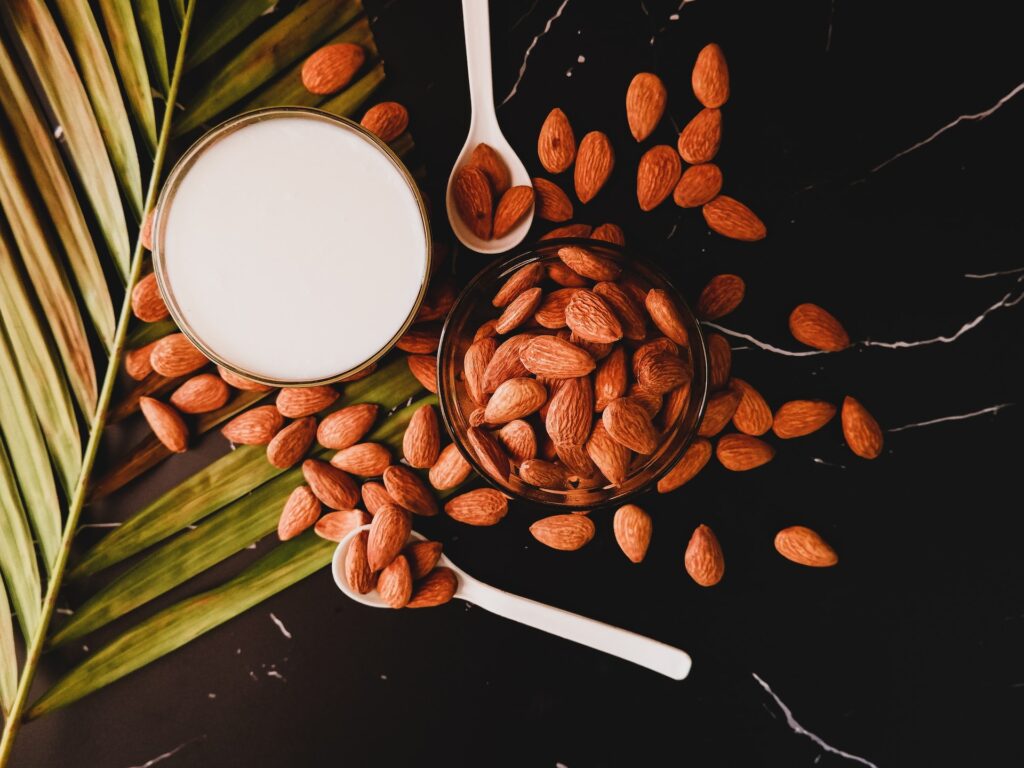Coffee Milk Alternatives Are on the Rise

Historically, coffee has been a drink that is typically drunk black or mixed with a dairy option. From half and half to milk, with some even adding butter, there are many ways America has gotten used to including dairy into their coffee diet. In recent years, however, that trend seems to be changing as people are looking for a milk replacement in their coffee. In fact, a poll taken by Morning Consult suggests that milk alternatives for coffee, such as almond and oat milk, are just as popular in American fridges as 1% or skim milk! With these kinds of results, what kinds of milk are people drinking, and why?
Which Milk Alternatives Are Best for Coffee?
There’s no scientific way to define which alt-milk is quintessentially the “best,” but there are consumer trends to help figure it out. Overall, almond and oat milk are far and away the most popular milk replacements people have been putting in their coffee.
Almond Milk
Made from a blend of almonds and water, Almond Milk was one of the first popular alternative kinds of milk to hit the fridges of cafes around the world. With a nutty, slightly sweet flavor, many people enjoy the balance this brings to a coffee drink. Orgeat and hazelnut are already popular flavors in coffee drinks, so it stands to reason that almond milk is naturally a good milk alternative for coffee beverages.
Almond milk does come with a cost, however. Almonds require large amounts of water to grow, with some studies suggesting that the large quantities of irrigation water required to grow almonds are largely unsustainable and could damage the ecologies of almond-growing communities in the long run. Though it is an incredibly popular milk alternative, almond milk’s incredibly high demand could have a backlash on our ecosystem.
Oat Milk
Oat Milk is made from a blend of oats and water and has quickly risen in prominence in cafes and fridges. With a wonderfully creamy texture and a light, neutral flavor, oat milk is an easy milk alternative for many dairy drinkers’ coffees.
Oat Milk also comes with the added benefit of being more sustainable than almond milk! It requires less water and space to grow, allowing for more oat milk to be produced with proportionally less water. Compared to the dairy industry, the carbon emissions of oat milk are drastically reduced, though there is still some level of emission from packaging and transportation.

Why are People Putting Milk Alternatives in their Coffee?
Milk replacements in coffee didn’t come out of nowhere, and there are more reasons than simple consumer habits.
Sustainability
The dairy industry is one of the largest industries in America, with dairy products making up a significant portion of many Americans’ diets. With all the inclusions of milk, butter, yogurt, beef, leather, and many more cow products, it’s clear why dairy milk was so popular for so long. As concerns grow regarding carbon emissions, more of a spotlight is placed on the dairy industry. Cows make up 14% of global greenhouse gas emissions, leading many consumers to search for a milk replacement for their daily coffee.
Alternative milk like almond and oat milk is a great contender. Overall, they require less land and water to sustain while also producing more product with fewer resources. Though there is still a significant amount of emission from the transportation of these goods, the core growing, harvesting, and processing sectors of these industries see far less emission than the dairy industry does.

Diets
Perhaps surprisingly, one of the main contributors to the cultural milk shift has been changes in the understanding of the human diet. Studies from Texas Health, among other organizations, found that it is possible to develop lactose intolerance into adulthood. In fact, this is a phenomenon commonly seen in other animals — Once a baby animal is grown enough that it doesn’t need to sustain itself off of its mother’s milk, that animal’s physiology changes in such a way that it cannot process milk as easily. This is the reason behind lactose intolerance in cats and dogs, as well as, it seems, humans.
Though many human cultures drink significant amounts of milk into their adulthood, it may come at a cost. More and more adults find that they have difficulty processing dairy milk, leading them to find milk alternatives for their coffee, like oat and almond milk. As more research is done on this topic, it is likely that these milk alternatives will become even more popular.
Drink the Right Milk for You
Though oat and almond milk may be popular, they aren’t the only alternative milk on the market. Cultures around the world have been drinking soymilk and coconut milk for centuries, and even newer milk alternatives like Macadamia milk, cashew milk, and even hemp milk are starting to walk onto the stage. Whichever milk you are drinking, make sure it’s paired with a delicious coffee!
